When To Add And How Much Worm Castings To Use In Your Veggie Garden

This post covers all things worm castings! Nature’s gold from our small friends, earthworms. In a number of scientific studies, worm castings have proven to develop stronger, bigger organic plants. But many gardeners still aren’t using them because they’re unaware of when to add and how much worm castings to use in your veggie garden. Well, this post will answer those questions and more!
I’m very excited to share that this content is written by guest writer, Jordan Mara.
Jordan is a B.C. based organic gardener and founder of Mind & Soil, a small business offering worm castings and gardening kits to Canadian gardeners. I’m thrilled he was willing to share his knowledge on worm castings with this community.
You can read more about Jordan’s inspiring mission and Mind & Soil at the end of this post, or simply by clicking here.
P.S. Don’t miss it — there’s an exclusive Mind & Soil promo code for you at the end of this post!
This post covers:
Select any of the links below to jump directly to that content.
- What Are Worm Castings
- The Benefits Of Using Worm Casting In Your Vegetable Garden
- When To Add Worm Castings To Your Veggie Garden
- How Much Worm Castings To Add
- Can You Use “Too Much” Worm Castings In The Garden?
- The Best Worm Castings To Soil Ratio
- Worm Castings vs. Compost — What’s Better
- Can You Use Worm Castings Instead Of Fertilizer?
- Free Shipping On Worm Castings Across Canada
All You Need To Know About Worm Castings
Words by: Jordan Mara
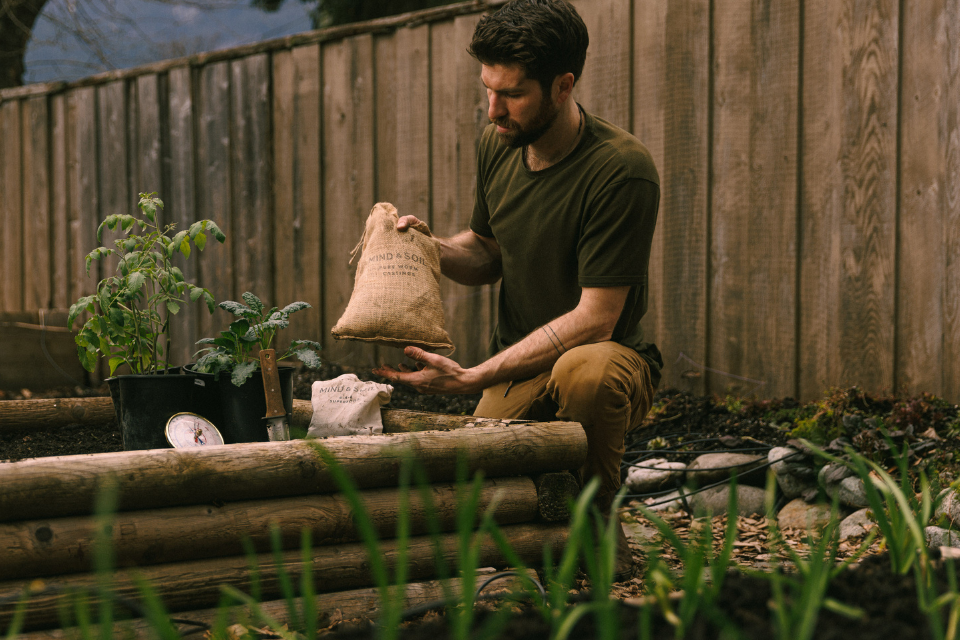
There are very few things that feel better than those first few warm Spring evenings, seeing the signs of new growth in the garden.
And as the gardening season rapidly approaches, we’re seeing more and more gardeners move toward organic and regenerative gardening practices. One of those practices being the use of the fastest growing organic garden amendment, worm castings.
Today I’m going to walk you through why you should be using worm castings in your veggie garden, the benefits and some of the basics when it comes to applying them to your garden.
What Are Worm Castings?
This is a good place to start!
Worm castings are the byproduct of worms decomposing organic matter. Otherwise known as worm poop.
Worms eat various types of organic matter, including kitchen scraps, leaves, debris and dirt. Unbelievably, worms can eat up to half their weight every single day! As food passes through their digestive tract, it’s broken down with bacteria and enzymes.
It’s the final product that comes from the worm’s digested food that creates what we call “worm castings.”
You may have also heard the term “vermicompost,” which is the technical word for worm castings. Vermi means “for the worm,” and compost signifies the decomposing process of organic matter.
Know that the two terms are interchangeable, so no need to get confused!
You can learn more about the basics of worm castings over on my website, Mind & Soil where I break down Worm Castings 101.
The Benefits of Using Worm Castings in Your Vegetable Garden
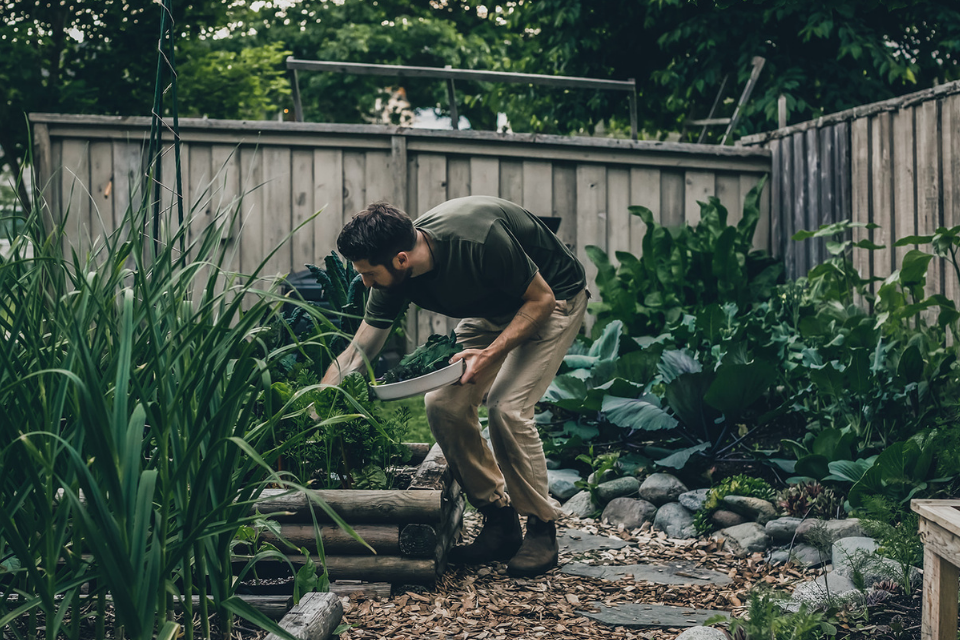
There have been countless studies released over the last 10+ years, proving worm castings are not only one of the most sustainable amendments to add to the garden, but also one of the most beneficial.
Here’s a few of the most impactful benefits research shows worm castings provide the garden:
Better Germination
Given the 100% humus nature of worm castings, they retain a significantly greater amount of water than potting mix.
According to a study by Washington State University, when worm castings are used instead of potting soil or mixed into potting soil, the results show that a greater number of seeds germinate.
Healthier Plants
According to a study completed by Cornell Researchers, worm castings are coated with beneficial bacteria and enzymes that have been proven to help plants suppress diseases.
200% Yield Increase
According to a study by the University of California, plants that received worm castings yielded 57% to 200% more foliage and fruit than those grown without any. That’s a major increase!
When To Add Worm Castings To Your Veggie Garden
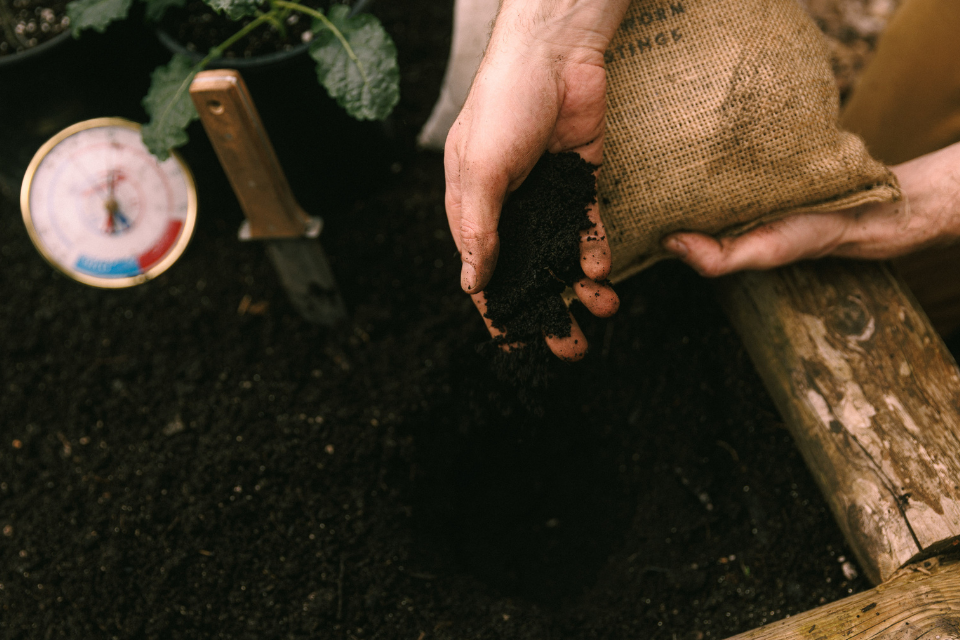
This is a very commonly asked question by organic gardeners. Everyone wants to know when’s the best time to add worm castings to the veggie garden.
Well, the answer is that there’s actually three ideal times to add worm castings to your garden.
1. Use worm castings in your seed starting soil mix
This allows you to ensure the worm castings are placed directly where the seed will be germinating and where the root zone will be developing, allowing the plant to make the absolute most of the precious black gold.
2. Use worm castings when transplanting your seedlings into the garden.
Mix a small handful of worm castings into the hole where you’re transplanting your seedling to promote strong root development.
3. Use worm castings to top dress plants 1-2 times throughout the gardening season.
These highly valuable worm castings can then be complemented by 1-2” of organic compost laid around the base of your plants.
How Much Worm Castings To Add To Your Plants
The common practice is to use about 20%-50% of worm castings within your entire soil mix.
This will look different depending on what you’re applying the worm castings to. Say if you’re adding worm castings to a small container or seedling soil mix, you might only need a few handfuls.
For seed starting, the suggested amount of worm castings to use is up to 50% of your soil mix. Whereas for houseplants, you’ll need much less as they aren’t fruiting plants. So as little as 10-20% of worm castings (compared to total soil) is ideal.
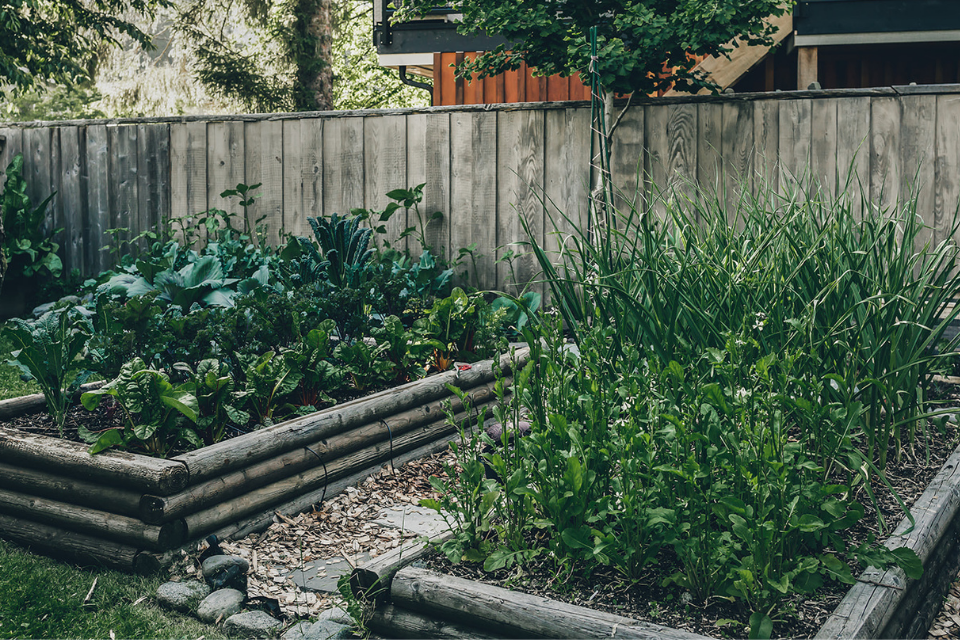
But when it comes to applying worm castings to an already established raised bed or garden, as pictured above, you’ll need to add a handful per plant or more.
For mature plants, we suggest sprinkling 1-2 handfuls of worm castings around the base of your plant. Gently massage it into the soil. Once you water your plant, the nutrients will slowly release and feed your plant’s roots.
The amount of worm castings you should add to your plants all depends on the application, plant size and amount of soil you’re mixing it into.
Can You Use “Too Much” Worm Castings In The Garden?
The simple answer to this is NO. Luckily, you can not add too much worm castings to your garden.
Some gardeners will only use worm castings as their seed starting soil mix. This doesn’t necessarily mean it’s something you should do, but the takeaway is that it won’t harm your plants.
Because worm castings are just digested organic matter, there’s no way they can “burn” your plants. The concept of burning plants came into existence with the emergence of synthetic fertilizers. Luckily with organic gardening, there’s very few risks of overdoing it.
So no, you can’t use “too much” worm castings in the garden.
But a little goes a long way, so even a small amount of worm castings can make a difference in your plants.
The Best Worm Castings To Soil Ratio
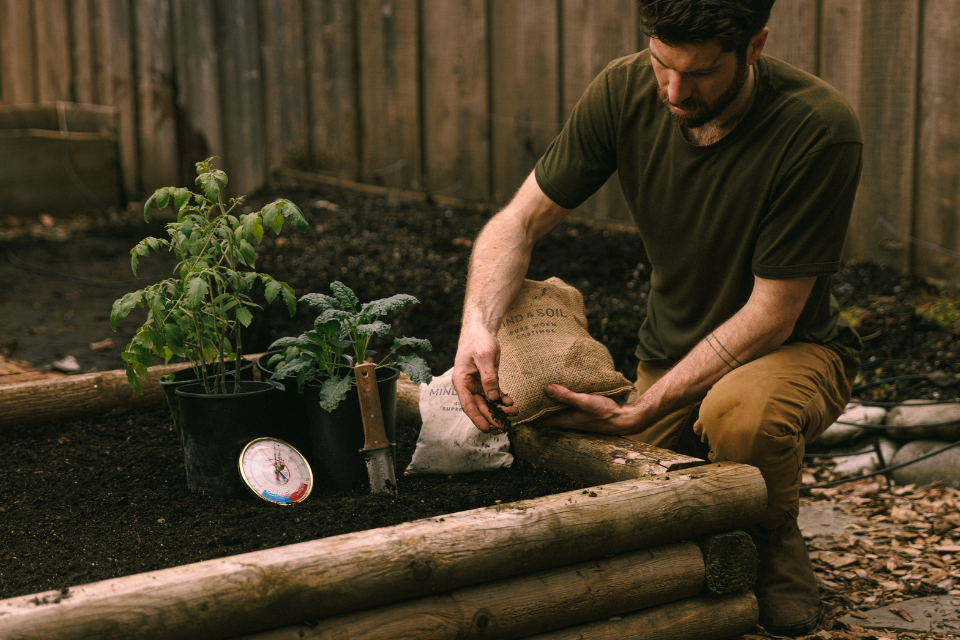
As mentioned above, there’s three different times that are ideal to apply worm castings to your veggie garden. Here I’ll break down my soil to worm castings ratio for each.
Seed Starting Worm Castings Ratio
Here’s our personal, fav recipe we use at Mind & Soil for seed starting with worm castings (we’ve been using it successfully for 3 years and counting!):
- 4 parts finely sifted compost
- 2 parts worm castings
- 2 parts soil medium (peat moss, coco coir, etc..)
- 1 part perlite
Combine these four inputs to create a beautiful seedling mix.
If making your own blend isn’t your thing, we ship our perfectly measured and pre-mixed Worm Casting Seedling Mix all across Canada. All you have to do is open the bag and fill your seed cells!
Seedling Transplanting Worm Castings Ratio
Now, if you’re ready to transplant your seedlings into the garden, we have a different recipe that yields amazing results:
- Dig a hole about 6” deep for transplanting your seedling into.
- Sprinkle 1 handful of pure worm castings into the bottom.
- Massage it in lightly.
- Transplant your seedling into the hole by loosening the roots and backfilling with the surrounding soil until it’s gently compact.
Top-Dressing Plants Worm Castings Ratio
Finally, if you’re at the stage when you have mature plants in the garden and want to offer them some extra nutrients, follow this ratio:
- Sprinkle an additional 1 handful of pure worm castings around the root of your plant.
- Gently massage it into the top 1” of soil.
- Water thoroughly and your plant will be thriving in no time!
Worm Castings vs. Compost – What’s Better?

As you’ve learned, the technical term for worm castings is vermicompost because they are indeed a form of compost. So what’s the difference between the two?
While both worm castings and compost are decomposed organic matter, worm castings are a bit more unique.
As the decomposition of organic matter occurs in the worm’s digestive tract, it is coated with beneficial bacteria and enzymes that are not part of the standard composting process.
Therefore, one could say worm castings are better than compost.
But compost has its own powerful benefits, such as retaining more moisture in your soil and adding fungi to your soil’s web.
All this to say, both worm castings and compost are great soil ammedments for organic gardeners. And for the best results, you can actually use both together!
The best way to utilize these together are to apply 1-2” of regular compost across the top of your bed as a foundational soil builder, and then utilizing worm castings when starting seeds and transplanting.
Can I Use Worm Castings Instead Of Fertilizer?
The simple answer to this is NO.
You should still use an organic fertilizer in your garden even if you’re using worm castings.
Because worm castings are decomposed organic matter, they are generally very mild from a nutrient perspective and perform best when supplemented with an organic fertilizer.
This combination ensures your plants are receiving both the microbial life and beneficial bacteria from the worm castings, as well as all the nutrients they need from an organic fertilizer.
If you use worm castings in your seed starting, you won’t need to apply any organic fertilizer to your plants until they are transplanted into the garden.
At this point, simply add 1 tbsp of an all-purpose organic fertilizer into your transplant hole as well as 1 tbsp as a top dressing.
Where To Buy Worm Castings In Canada?
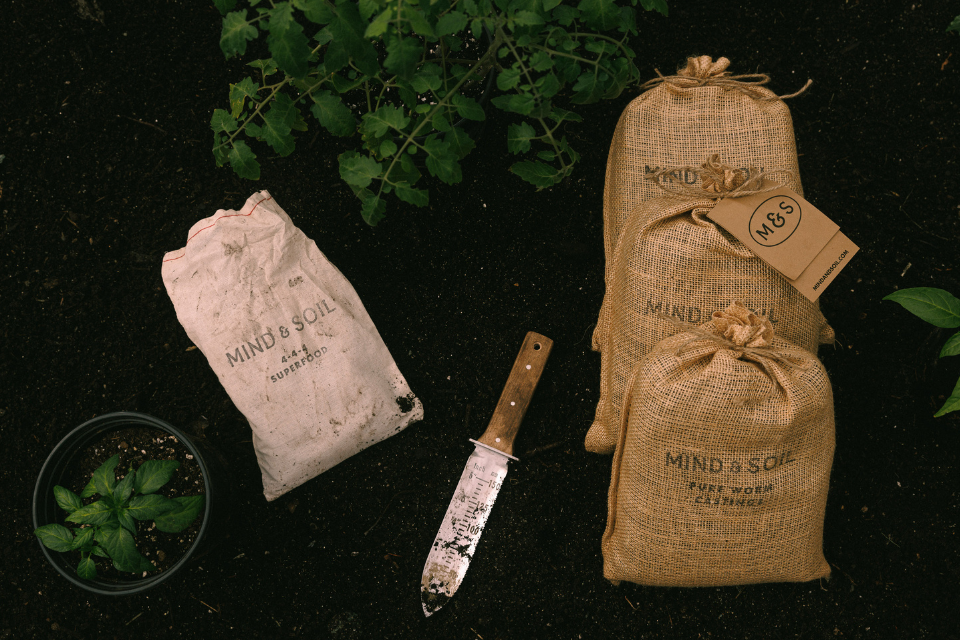
Of course, we encourage you to source your organic worm castings from, Mind & Soil!
We carry three products that include our worm castings:
By incorporating worm castings into your garden plan, you’ll be setting your plants up to grow big, healthy, and strong – and undoubtedly will result in some incredible harvests!
Free Shipping on Worm Castings Across Canada
Mind & Soil is happy to offer From Soil to Soul community members an exclusive discount on FREE SHIPPING on all orders over $75.00 within Canada.
Simply enter promo code fromsoiltosoul at checkout and free shipping will be applied to your order.
This promotion is valid until December 2024. Get your hands on some high quality, premium Mind & Soil worm castings and watch how they transform your garden this season.
Shop all Mind & Soil products
About Jordan Mara, Founder of Mind & Soil
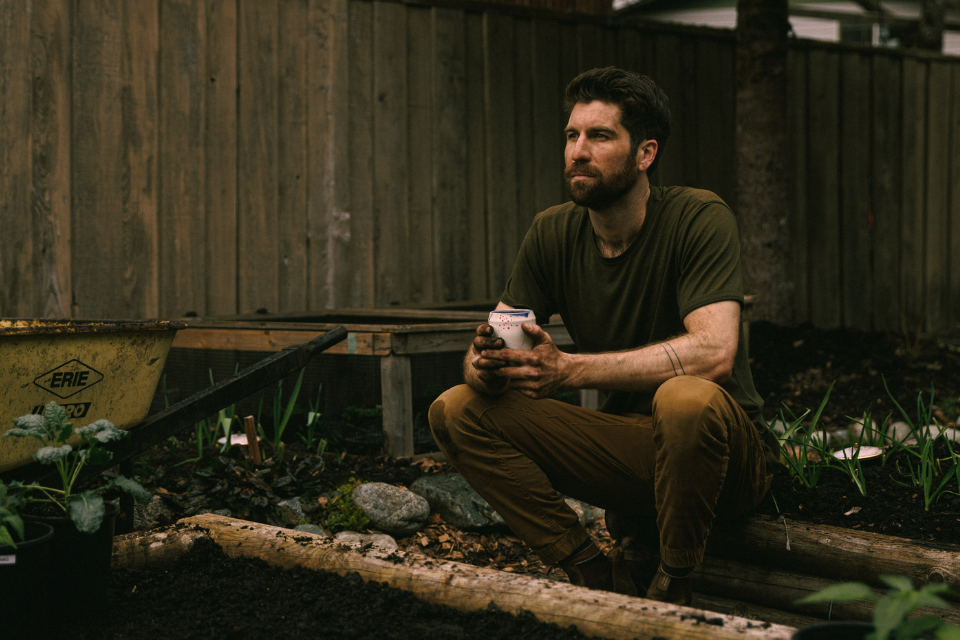
Jordan is an organic gardener with the mission of bringing the mental health benefits of gardening to 1,000,000 individuals. He’s based in Squamish B.C. Canada, where he grows his own backyard garden as well as operates Mind & Soil.
He started his gardening journey in 2013 after finding peace and ease from spending time in his Mother’s garden. Over the last 10 years, he’s experimented with vermicomposting, eventually developing Mind & Soil — Premium and Organic Worm Castings.
More Organic Gardening Blogs
- Where To Buy The Best Organic Vegetable Seeds In Canada
- Complete Raised Bed Gardening Guide For Beginners
- How To Properly Water & Fertilize Your Indoor Seedlings
If you have any unanswered questions regarding using worm castings in the veggie garden, be sure to comment below. I love hearing from you and answer all comments.
You can follow @fromsoiltosoul on Instagram and Pinterest for more gardening content too.

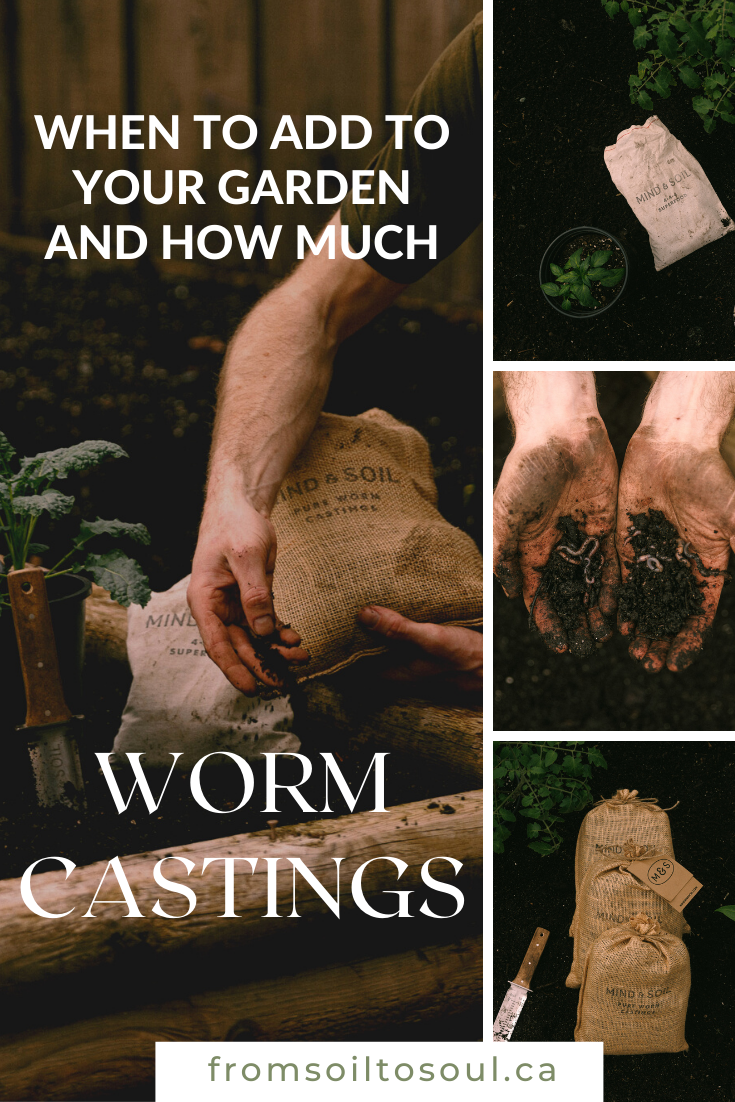
I found your information about the benefits of earthworm castings for soil and plant health really interesting. As a new gardener, I’m keen to explore using worm-casting compost to support my plants. I’ll be looking into finding a supplier for worm castings soon. For additional gardening insights and tips, I’ll make sure to visit https://broadpick.com.
Best regards,
B.Sc Ag(Hons)
MSc. In Agronomy
Bangladesh Agricultural University